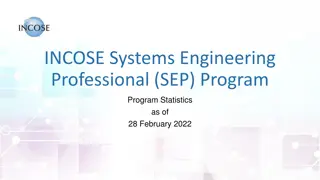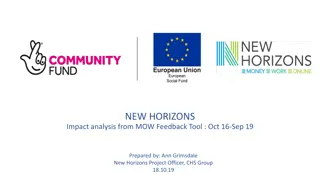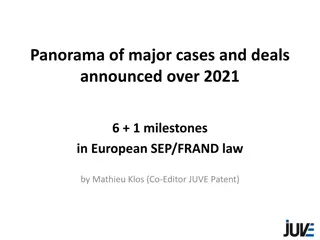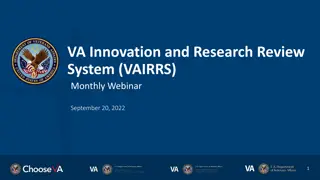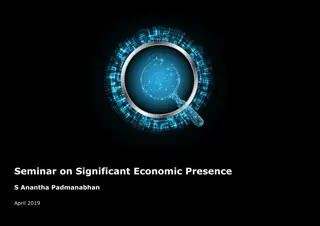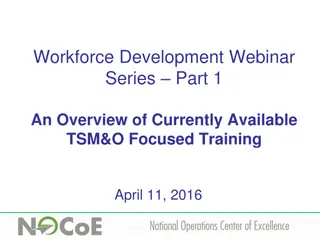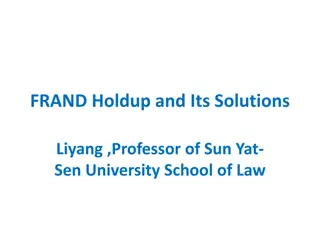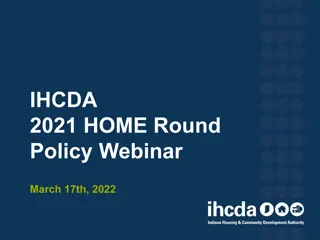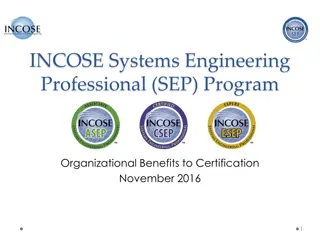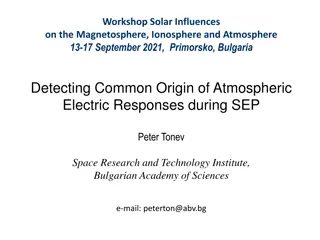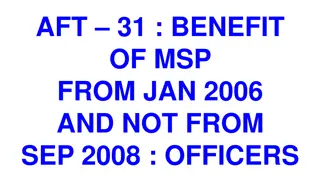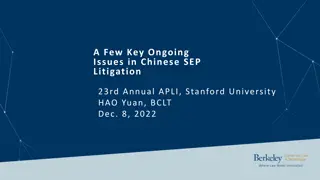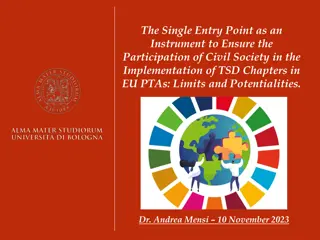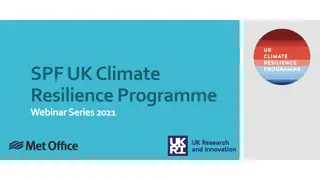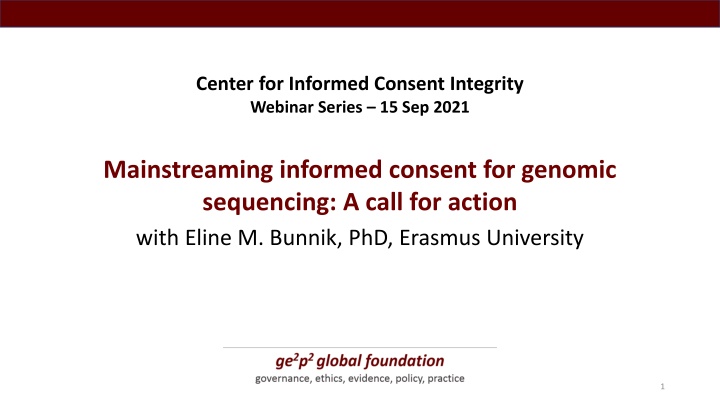
Mainstreaming Informed Consent for Genomic Sequencing - Call for Action
Explore the Center for Informed Consent Integrity's webinar series discussing the importance of advancing ethical rigor in research, with a focus on genomic sequencing. Discover the Foundation's work through various centers and programs, highlighting the critical role of informed consent in today's scientific landscape. Join the conversation on advancing rights and articulating evolving capacity in diverse cultural contexts and governance models.
Download Presentation

Please find below an Image/Link to download the presentation.
The content on the website is provided AS IS for your information and personal use only. It may not be sold, licensed, or shared on other websites without obtaining consent from the author. If you encounter any issues during the download, it is possible that the publisher has removed the file from their server.
You are allowed to download the files provided on this website for personal or commercial use, subject to the condition that they are used lawfully. All files are the property of their respective owners.
The content on the website is provided AS IS for your information and personal use only. It may not be sold, licensed, or shared on other websites without obtaining consent from the author.
E N D
Presentation Transcript
Center for Informed Consent Integrity Webinar Series 15 Sep 2021 Mainstreaming informed consent for genomic sequencing: A call for action with Eline M. Bunnik, PhD, Erasmus University 1
Purpose Advance ethical and scientific rigor in research and evidence generation across health, human rights, humanitarian response, education, heritage stewardship, and development 2
The Foundation focuses its work through Centers which align with and benefit from the knowledge and practice domain strengths across our community of practice Center for Ethics and Policy on Access to Medicines Center for Vaccine Ethics and Policy Center for Disaster and Humanitarian Ethics Center for Sustainable Development Research Center for Human Rights Research Ethics Center for Informed Consent Integrity Center for Heritage Stewardship Research Center for Education & Literacy Research 3
Publishing/Public Comment/Convening/ IC Monthly Review; Webinar Series; Symposia Asymmetric Interventions Asymmetric Interventions Strategic Theme: Consent Across Research Disciplines/Cultural Contexts/Governance Models Strategic Program Advancing Rights & Exercise/Articulating Evolving Capacity Center for Informed Consent Integrity Programmatic Foci Strategic Program COVID Vaccines & Therapeutics+: Informed Choice/ Consent/Refusal Strategic Program Informed Consent in Genomic Medicine Asymmetric Interventions Strategic Program IC Integrity/Transparency in Clinical Development and Translation Asymmetric Interventions Sketch 7.0 at 10 Sep 2021 4
Center for Informed Consent Integrity [CICI] Webinar Series 15 Sep 2021 Call Focus :: Journal Paper Mainstreaming informed consent for genomic sequencing: A call for action Host: David R. Curry - President, GE2P2 Global Fdn Discussant: Eline M. Bunnik, PhD, Erasmus University. Rotterdam Open Forum: Discussion/Observations/Insights/Q&A 5
Mainstreaming informed consent for genomic sequencing: A call for action Current Perspective Eline M. Bunnik, Wybo J. Dondorp, Annelien L. Bredenoord, Guido de Wert, Martina C. Corneld European Journal of Cancer, May 2021; 148 pp 405-410 Abstract The wider availability of genomic sequencing, notably gene panels, in cancer care allows for personalised medicine or the tailoring of clinical management to the genetic characteristics of tumours. While the primary aim of mainstream genomic sequencing of cancer patients is therapy-focussed, genomic testing may yield three types of results beyond the answer to the clinical question: suspected germline mutations, variants of uncertain significance (VUS), and unsolicited findings pertaining to other conditions. Ideally, patients should be prepared beforehand for the clinical and psychosocial consequences of such findings, for themselves and for their family members, and be given the opportunity to autonomously decide whether or not to receive such unsolicited genomic information. When genomic tests are mainstreamed into cancer care, so should accompanying informed consent practices. This paper outlines what mainstream oncologists may learn from the ethical tradition of informed consent for genomic sequencing, as developed within clinical genetics. It argues that mainstream informed consent practices should focus on preparing patients for three types of unsolicited outcomes, briefly and effectively. Also, it argues that when the chance of unsolicited findings is very low, opt-out options need not be actively offered. The use of a layered approach integrated in information systems should render informed consent feasible for non-geneticist clinicians in mainstream settings. (Inter) national guidelines for mainstreaming informed consent for genomic sequencing must be developed. Truth/ Knowledge: Recognition 8
Mainstreaming informed consent for genomic sequencing: A call for action Current Perspective Eline M. Bunnik, Wybo J. Dondorp, Annelien L. Bredenoord, Guido de Wert, Martina C. Corneld European Journal of Cancer, May 2021; 148 pp 405-410 Box 3 Layered consent. Oncologists may use a layered model for informed consent [19]. In layered approaches, the information that is provided as part of the informed consent process is subdivided into layers. In the first layer, essential or material information is conveyed key information that all (reasonable) patients need in order to provide informed consent. Since the early 1970s, this has commonly been referred to as the reasonable person standard of disclosure. In the second, third and further layers, additional, more detailed information can be provided if the patient wishes to receive such information. People differ in their informational needs [21]. The layering of information helps to tailor the information provided to individual patients informational needs, and thus, allows for personalisation of informed consent. This is referred to as the subjective standard of disclosure [22]. Some people need more information than others in order to provide informed consent. To meet the subjective standard, dialogue (e.g. in the form of pre-test counselling) is indispensable. Truth/ Knowledge: Recognition 9
Mainstreaming informed consent for genomic sequencing: A call for action Current Perspective Eline M. Bunnik, Wybo J. Dondorp, Annelien L. Bredenoord, Guido de Wert, Martina C. Corneld European Journal of Cancer, May 2021; 148 pp 405-410 Box 4 Essential information and examples of brief explanations of the implications. Truth/ Knowledge: This means that your cancer may be Recognition hereditary. Knowing this may have consequences for you and for your family members . Germline mutations Today, we do not know what such a finding means, but we may learn more in the future, and we may contact you again once we know more . VUS There is a small chance that we find genetic risks for conditions other than your current condition. You may not wish to learn this information . Incidental findings 10
Mainstreaming informed consent for genomic sequencing: A call for action Current Perspective Eline M. Bunnik, Wybo J. Dondorp, Annelien L. Bredenoord, Guido de Wert, Martina C. Corneld European Journal of Cancer, May 2021; 148 pp 405-410 In sum, we propose setting a realistic bar for informed consent practices for genomic testing for the purposes of personalised medicine in oncology settings when appropriate. When gene panels are used, and the likelihood of unsolicited findings is very slim, the option to opt out need not be discussed in the first layer with all patients. Truth/ Knowledge: Recognition First and foremost, clinicians should focus on helping patients understand briefly, without too much technical detail that potential germline mutations, VUS and unsolicited findings pertaining to other conditions may be uncovered findings that patients may not otherwise expect and which may have a major impact on them and on their family members. This way, patients are not hampered in autonomous decision-making by information overload, while they do receive sufficient information to make the decision to initiate genomic sequencing. (Inter) national guidelines for mainstreaming informed consent for genomic sequencing must be developed. 11
Defining the Critical Components of Informed Consent for Genetic Testing: A Delphi Study View ORCID ProfileKelly E. Ormond, Maia Borensztein, View ORCID ProfileMiranda L.G. Hallquist, View ORCID ProfileAdam H. Buchanan, W. Andrew Faucett, View ORCID ProfileHolly L. Peay, Maureen E. Smith, View ORCID ProfileEric P. Tricou, View ORCID ProfileWendy R. Uhlmann, View ORCID ProfileKaren E. Wain, View ORCID ProfileCurtis R. Coughlin II doi: https://doi.org/10.1101/2021.06.24.21259406 This article is a preprint and has not been peer-reviewed [what does this mean?]. It reports new medical research that has yet to be evaluated and so should not be used to guide clinical practice. ABSTRACT Purpose Informed consent for genetic testing has historically happened during pre-test genetic counseling, without specific guidance defining which core concepts are required. Methods The Clinical Genome Resource (ClinGen) Consent and Disclosure Recommendations Workgroup (CADRe) used a modified Expert Delphi consensus process to identify the core concepts essential to consent for clinical genetic testing. A literature review identified 77 concepts that are included in informed consent for genetic tests. Twenty five experts (9 medical geneticists, 8 genetic counselors, and 9 bioethicists) completed two rounds of Delphi surveys ranking concepts importance to informed consent. Results The most highly ranked concepts included: (1) genetic testing is voluntary; (2) why the test is recommended and what does it test for; (3) what results will be returned and to whom; (4) are there other types of potential results; what choices exist; (5) how will prognosis and management be impacted by results; (6) what is the potential family impact; (7) what are the test limitations and next steps; (8) potential risk for genetic discrimination and legal protections. Conclusion Defining the core concepts necessary for informed consent for genetic testing provides a foundation for quality patient care across a variety of healthcare providers and clinical indications. 12
Financial Times, August 31 2021 Opinion - Genomics Covid has revealed the need for genomic sequencing around the world Rich countries must act to expand our knowledge of Sars-Cov-2 by establishing close monitoring in poorer nations Harold Varmus - The writer, a Nobel laureate in physiology or medicine, chairs the WHO Science Council The rapid spread of the Delta variant of Sars-Cov-2 has dashed hopes that the pandemic might soon be over. It has also raised the prospect that yet more dangerous variants, including those impervious to vaccines or prior infections, might arise. While we lack complete knowledge of how the most dangerous variants of Sars-Cov-2 are generated, we do know that these emerge through mutations to the genome that occur when the virus replicates. Such mutations are more likely to arise in immune-compromised individuals in whom the virus can replicate repeatedly for extended periods. Variants of special concern are those that infect cells more efficiently or evade immune responses. As long as the virus is spreading as widely as it is now particularly in unvaccinated populations found both in wealthy countries with abundant vaccine and in low- and middle-income countries where vaccines are very limited a substantial fraction of infected individuals needs to be monitored for viral variants. This cannot be done with the two widely available tests through the polymerase chain reaction or an antibody test since these tests are not designed to detect mutations. Instead, genome sequencing, performed by machines that can quickly read the order of the four chemical elements that compose viral genomes, must be used to identify mutations, followed by studies to determine whether any are responsible for changes in the behaviour of the virus 13
Truth/ Knowledge: Open Forum: Recognition Discussion/Questions/Observations 14



